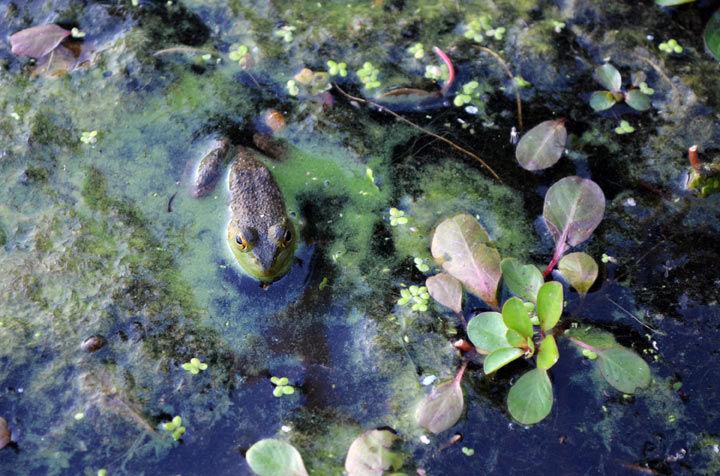University still searching for origin of Campus Lake toxins
December 7, 2015
Despite multiple tests conducted this semester on pipes surrounding Campus Lake, there is still no definitive source of high E. coli levels in the water, according to Phil Gatton, director of the university’s Plant and Service Operations.
RJN Group Inc., a professional engineering and specialty field services firm, partnered with the university to test pipes surrounding Campus Lake this fall. The most recent tests used cameras to inspect the inside condition of the pipes after smoke tests in September indicated potential leaks in the system.
Testing has cost the university $63,500, including $25,000 for the camera test alone.
Advertisement
Three cameras with LED lights were guided through the pipe system, Gatton said. He said results received by the university last week concluded the nearly 60-year-old pipes to be in surprisingly good condition.
While results did not indicate major issues with the pipes, he said there is concern that as manholes age, they become more porous and water can seep into the sewer system from storm pipes. He said some of the manholes, which are made of brick and mortar, may be deteriorating.
He said this is also a concern vice versa: if sewage pipes became pressurized from liquid coming in through a leak, contents would get into the storm pipes that are connected to the lake. However, Gatton said this would be a rare occurrence.
A section of storm sewer pipe was found broken near Lentz Hall, and Gatton said it has the potential to effect the sewer pipes around it.
“We do not believe we are putting raw sewage into the lake,” he said. He also said if while not likely, in certain conditions there is a chance it could have happened in the past.
The physical plant has also conducted soil boring tests. Last week, four soil samples were taken by boring 28 feet into the ground between Lentz Hall and the lake to further investigate the abnormally high groundwater E. coli levels.
The results reaffirmed previous tests conducted by zoology professor Marjorie Brooks, which had also found an unusually high concentration of E. coli in the groundwater.
Advertisement*
Gatton said some individuals thought the lake’s high nutrient and cyanobacteria levels came from E. coli in west campus storm and sewer pipes.
“We’re having a hard time proving and believing that it came from Thompson Point unless it came from an unusual event,” he said.
RJN recommended the university begin a maintenance program for either repairing or replacing the aging pipes, he said.
Gatton is meeting with the faculty Senate at 1 p.m. Tuesday to discuss the state of the lake, present the most recent test results and discuss what action should be taken next.
Anna Spoerre can be reached at [email protected] or 618-536-3325.
Advertisement









